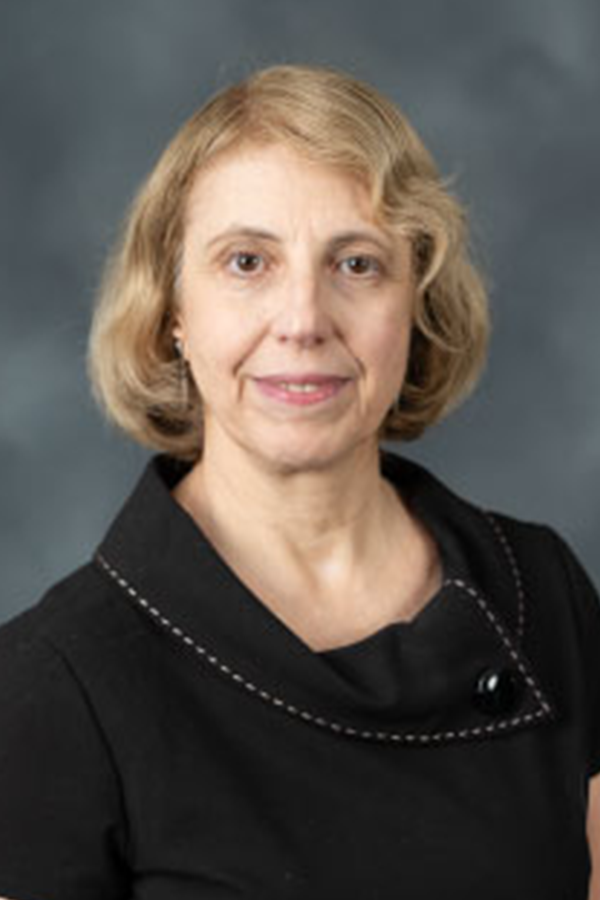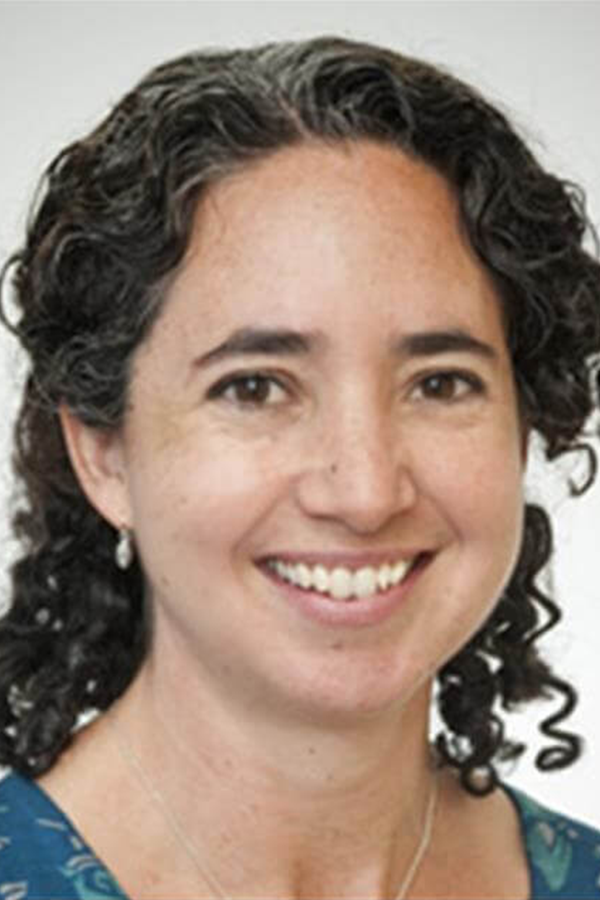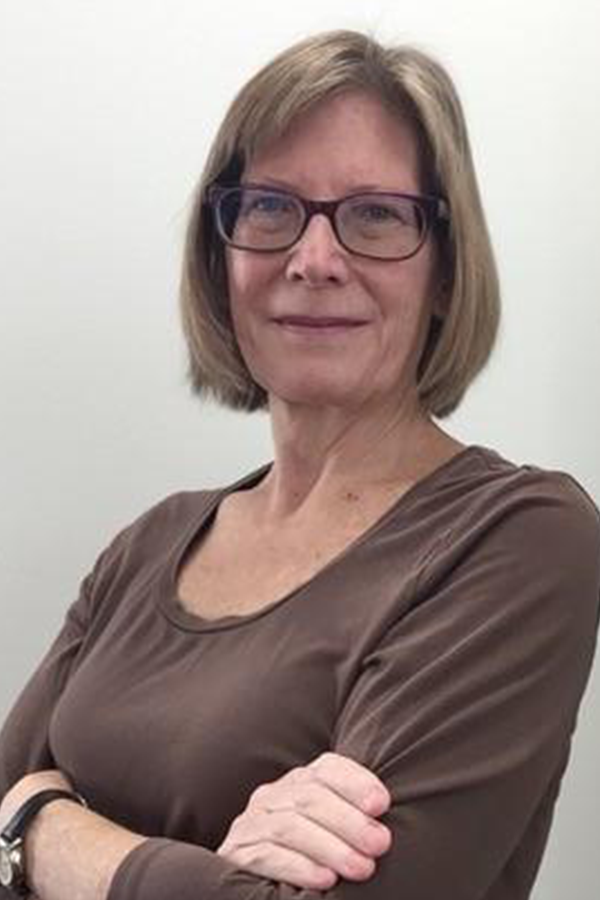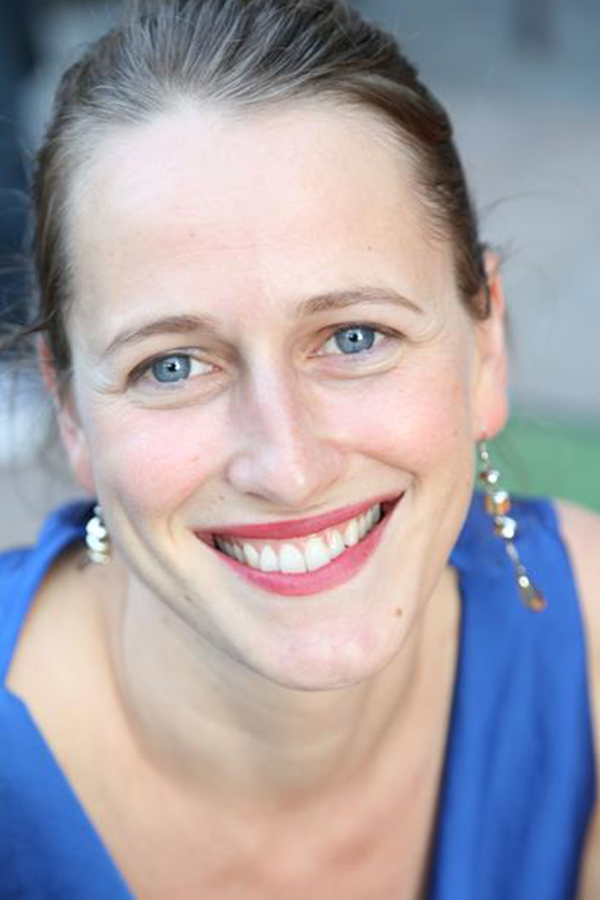
Dr. Hanadys (Hany) Ale is a board-certified allergist and immunologist at Joe DiMaggio Children’s Hospital/Memorial Healthcare System and an Assistant Professor at FIU Herbert Wertheim College of Medicine. She serves as the Medical Director of the 22q11.2 Multidisciplinary Program at Joe DiMaggio Children’s Hospital, where she provides comprehensive, lifespan-focused care to children and adults with 22q11.2 Deletion Syndrome.
Dr. Ale is deeply committed to advancing collaborative care models, fostering connections among clinicians, researchers, and family support organizations, and improving access to high-quality 22q11.2–related healthcare across diverse regions. In addition to her clinical work, she is actively involved in medical and graduate medical education, serving as the Program Director of the Transitional Year Residency Program and as course director for Immunology at FIU.
Recognized for academic excellence and leadership, Dr. Ale is a member of the Alpha Omega Alpha (AOA) Honor Medical Society and a recipient of FIU’s TORCH Distinguished Alumna Award. Her scholarly work includes publications in peer-reviewed journals such as Pediatrics in Review, Journal of Allergy and Clinical Immunology: In Practice, and Genes. As Chair of the 22q11.2 Society Network of the Americas, she is dedicated to strengthening regional and international collaboration and ensuring that providers, researchers, and families are supported and connected.

Dr. Jill Arganbright, MD is an Associate Professor of Surgery and Clinical Assistant Professor of Otorhinolaryngology at the University of Missouri Kansas City School of medicine and specialized in velopharyngeal insufficiency (VPD) at Children's Mercy Hospital in Kansas City.
She graduated from the Medical College of Wisconsin in 2008 and completed her residency in Otolaryngology at the University of Kansas Medical Center. Dr. Arganbright completed a fellowship in Pediatric Otolaryngology at the Children's Hospital Colorado. She has a special research interest in 22q11.2 deletion syndrome; her areas of expertise include drug-induced sleep endoscopy and surgical management of obstructive sleep apnea in children.

Dr. Natalie Blagowidow received her MD from Cornell University Medical College in New York. She completed her residency in Obstetrics and Gynecology and the Hospital of the University of Pennsylvania and fellowship in Reproductive Genetics and Human Genetics at the Hospital of the University of Pennsylvania and the Division of Human Genetics at the Children's Hospital of Philadelphia. Dr. Blagowidow has a board certification in clinical genetics and clinical cytogenetics. She is also a Founding Fellow of the American College of Medical Genetics.

Ania Fiksinski (PhD) is a psychologist and researcher based in the Netherlands. She is currently working as a postdoctoral research fellow at Maastricht University and the Wilhelmina Children's Hospital / University Medical Center Utrecht (the Netherlands).
Ania finished her MSc. training as a psychologist in 2013 (Utrecht, the Netherlands) and obtained her PhD degree in February 2021, which she conducted under the supervision of Prof. Anne Bassett (Toronto), Prof. Rene Kahn (Utrecht/New York), and Dr. Jacob Vorstman (Toronto/Utrecht). The PhD dissertation, focusing on individuals with 22q11.2 deletion syndrome, can be found in our Thesis Vault.
Ania remains closely affiliated with The Dalglish Family 22q Clinic. She also acts as an Advisor to The 22q11.2 Society and holds close ties to several national and international patient advocate organizations. Her research focuses on understanding cognitive and behavioral trajectories in the context of a pathogenic genetic variant such as the 22q11.2 deletion, including the study of both genetic and (early) phenotypic factors, as well as different age groups, as to eventually improve understanding of these expressions across the entire lifespan.
Ania was one of the winners of the Junior Investigator Award of the 22q11.2 Society.

Dr. Emily Gallagher is a pediatrician with specialized training in Craniofacial Medicine. She obtained her Masters in Public Health at University of California, Berkeley, and her Medical Degree at Oregon Health and Sciences University (OHSU) in 2007. She completed a residency in Pediatrics and fellowship in Craniofacial Medicine, both at the University of Washington School of Medicine, where she is now an Associate Professor in the Department of Pediatrics.
Dr. Gallagher has been managing the care of children with craniofacial conditions and 22q11.2 Deletion Syndrome since 2010. In this role, she cares for children from birth through adolescence in both inpatient and ambulatory settings. She started a 22q Clinic at OHSU in 2011, and after returning to Seattle in 2014, became the Director of the 22q Program at Seattle Children's Hospital. In this role, she leads a multidisciplinary team to provide care for children with 22q11.2-related disorders. She is also interested in improving social support connections and education for patients and families affected by 22q.
Dr. Gallagher's research interests include improving neurocognitive and academic outcomes in children with craniofacial conditions. She has published on differences in academic outcomes for children with orofacial clefts and is studying potential interventions to improve outcomes for young children with clefts and 22q11.2 Deletion Syndrome. Among the interventions she studies are reading interventions aimed at supporting early childhood literacy and speech outcomes, as well novel technology to improve access to hearing assessment and treatment of hearing loss in low resource settings (currently in Sub-Saharan Africa).

Prof. Doron Gothelf, M.D. graduated from medical school and completed residency in adult psychiatry and fellowship in child & adolescent psychiatry at Tel Aviv University and Geha Mental Health Center. He has also completed a postdoctoral research fellowship at the Behavioral Neurogenetics and Neuroscience Centers, Stanford University working with Prof. Allan Reiss. He is a full professor of psychiatry at Sackler Faculty of Medicine, Tel Aviv University, the pioneer and director of the Behavioral Neurogenetics Center, and Director of Child Psychiatry Division at Sheba Medical Center and an editor at European Child & Adolescent Psychiatry. He is also the president of the Israel Society for Child & Adolescent Psychiatry and past president of the Israel Society for Biological Psychiatry. Prof. Gothelf has been studying 22q11.2 deletion syndrome and Williams syndrome during the last 25 years. He has published more than 200 peer-reviewed articles in the field of behavioral neurogenetics, child psychiatry and psychopharmacology.

Dr. Loydie Jerome-Majewska received her B.A. from Wesleyan University and Ph.D. from Columbia University with Honors. She completed her post-doctoral trainings at Columbia University and Memorial Sloan Kettering Institute. Dr. Jerome-Majewska served as Assistant Professor in the Department of Pediatrics at McGill University in Montreal, Canada from 2005 to 2014 was promoted to Associate Professor with tenure in 2014. She is co-Director of the Centre for Research in Reproduction and Developmental Biology at McGill University and a former member of the Widening Participation Committee which is tasked with evaluating and infusing Diversity, Equity and Inclusion into the activities of the Faculty of Medicine. Dr. Jerome-Majewska is also currently co-Editor-in-Chief for Differentiation.
Dr. Jerome-Majewska's laboratory investigates the molecular and cellular bases of human developmental disorders, including those involving core components of the spliceosome that have been linked to craniofacial malformations in human patients using mouse genetics. The goals of Dr. Jerome-Majewska's research program are to identify genes responsible for congenital malformations in humans and to delineate the cellular and genetic pathways regulated by these genes.
In 2022, Dr. Jerome-Majewska received the SCGDB Marylou Buyse Distinguished Scientist Award.


Maude Schneider is Assistant Professor at the Faculty of Psychology and Educational Sciences of the University of Geneva and is head of the Clinical Psychology Unit for Intellectual and Developmental Disabilities. She also works as a psychologist and psychotherapist with children and adolescents with neurodevelopmental disorders. She obtained her PhD in clinical psychology in 2014 and worked as a post-doctoral researcher at the University of Leuven (KU Leuven - Prof. Myin-Germeys) between 2015 and 2016 to get trained in the use of Ecological Momentary Assessment techniques.
Maude Schneider has been working for many years in the field of neurodevelopmental disorders and genetic syndromes, 22q11.2 deletion syndrome in particular. She is particularly interested to better understand the factors underlying social difficulties in adolescents and young adults. Active in the associative field, she is the scientific coordinator of "22q11Europe", the supranational association on 22q11.2 deletion syndrome in Europe.


Dr. Unolt is a pediatric cardiologist who currently works at the Bambino Gesù Pediatric Hospital in Rome, Italy. She completed her Medical Doctor degree and her Residency in Pediatrics at the Sapienza University of Rome, where she collaborated for about 7 years with Prof. Bruno Marino on research about 22q11.2DS and on developing the Program for adolescents and adults with 22q11.2DS, with the help of the Italian Association for Persons with 22q (Aidel22).
During her Residency, in 2016, she spent six months in Philadelphia, where she worked as a researcher with Donna McDonald-McGinn at the 22q&You Center of the Children's Hospital of Philadelphia.
Dr. Unolt completed also a 2nd level master's degree in Pediatric Cardiology at the Sapienza University of Rome. Currently she is working towards her PhD in Innovative Biomedical Technologies in Clinical Medicine at the Sapienza University of Rome.
During her studies, Dr. Unolt participated in many meetings and conferences. She started attending International 22q11.2 Meetings in 2014 in Palma di Mallorca. She has continued to participate actively in all the Meetings.
She is a member of the 22q11.2 Society.

Dr. Elfi Vergaelen is an adult psychiatrist specialized in psychosomatic symptoms and intellectual disability. She obtained her MD and completed her medical specialty training at the University of Leuven. Dr. Elfi Vergaelen completed her PhD thesis "Bridging brain and body in 22q11" in 2019. In this research she focused on a possible role for the immune system in psychiatric disorders in 22q11.
Currently, she works at the University Psychiatric Center KU Leuven in Leuven, Belgium. In her clinical work she focuses on the multidisciplinary treatment of functional disorders and somatic symptom disorders. In addition she follows up adults with 22q11.2 deletion syndrome in collaboration with the center for human genetics at the university hospital Leuven. As part of her research, she is interested in the interaction between the brain and the body. She concentrates on the role of the immune system and the stress system in psychological symptoms as well as unexplained physical symptoms in adults.

Prof. Joris Vermeesch is a professor of Molecular Cytogenetics and Genome Research at KU Leuven. He serves as the coordinator for the Genomics Core, Leuven, and as the head of the Constitutional Cytogenetics unit at the Center for Human Genetics. He received his Ph.D. from the University of Nebraska-Lincoln in 1993 with studies on telomere biochemistry. He is on the board of directors for the International Society for Prenatal Diagnosis as well as a member of the European Cytogenetics Association's Scientific Program Committee. He is also the president-elect of the International Society of Preimplantation Genetic Diagnosis. He previously served as president of the Belgian Society of Human Genetics from 2008 to 2010. His research entails the development of novel genomic technologies for genetic diagnostic testing and identifying the molecular mechanisms behind chromosomal instability and rearrangements. His laboratory has been analyzing the sequences of those with 22q11.2 Deletion Syndrome with the goal of learning more about the causes of phenotypic variability.

Jacob Vorstman MD, PhD is an associate professor of psychiatry at The Hospital for Sick Children and the University of Toronto, in Toronto, Canada. He is originally from the Netherlands, where he trained in both child and adolescent psychiatry (clinic and research) and molecular genetics (research). Between 2004 and 2006 and from April 2016 to June 2017 he also worked in the Children's Hospital of Philadelphia, United States of America.
Starting in 2001, his research aims to elucidate genotype-phenotype relations in autism and schizophrenia. An important part of his research focuses on the psychiatric and genetic aspects of the 22q11.2 deletion.
In September 2017 he moved to Toronto where he, together with his team at the Autism Research Unit, initiated a multidisciplinary clinic called DAGSY (Developmental Assessment of Genetically Susceptible Youth), designated for children with genetic risk variants associated with a psychiatric or neurodevelopmental outcomes. As of January 2020, he holds the SickKids Psychiatry Associates Chair in Developmental Psychopathology.